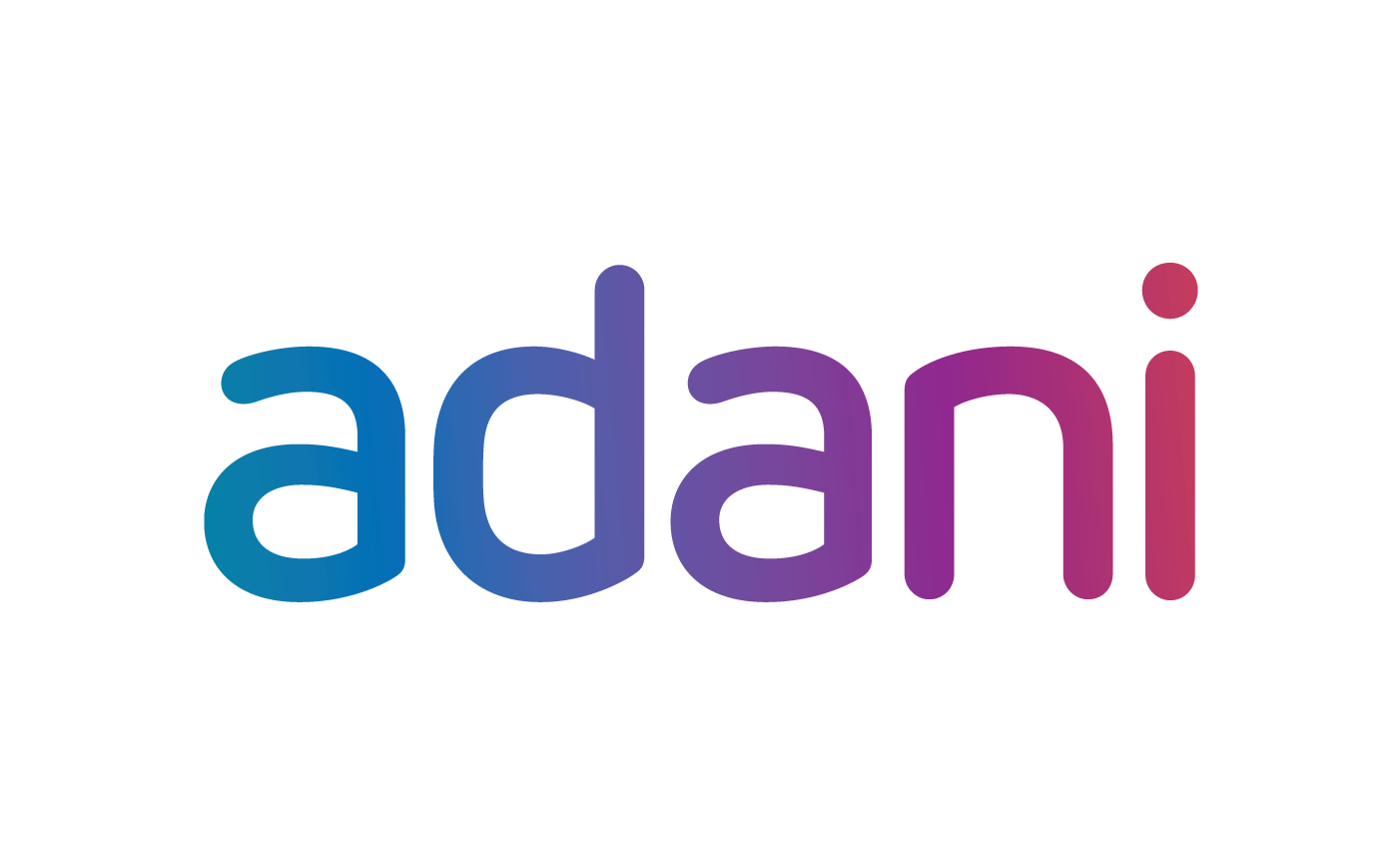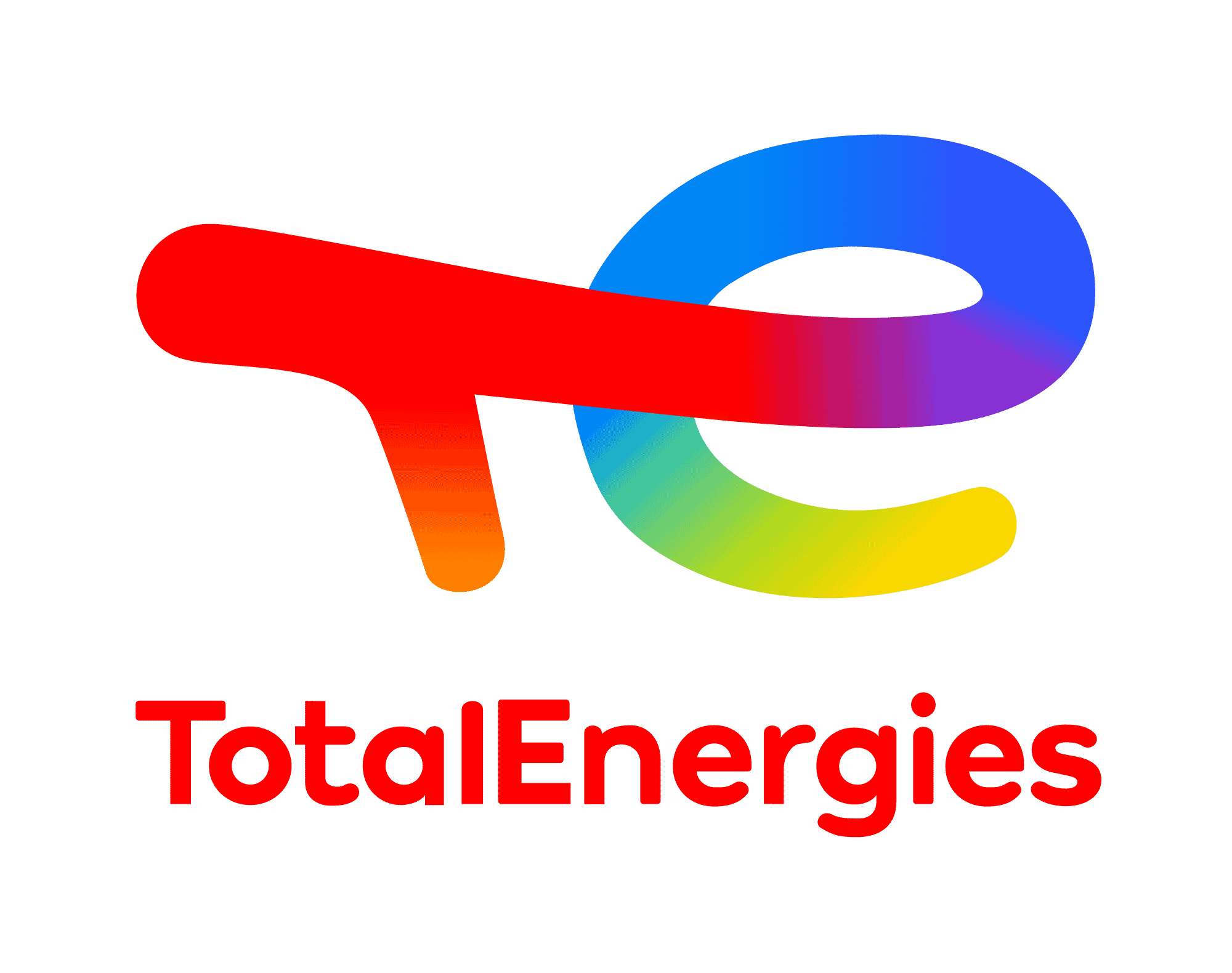No more toxic bonds
Banks must cut ties with fossil fuel expansion

The bond market is a critical source of finance for the world’s most polluting companies. Although climate experts stress the urgent need to halt new fossil fuel projects, companies involved in fossil fuel expansion continue to raise billions through global bond markets. In order to do so, these companies rely on a chain of financial institutions, including banks, investors and credit rating agencies. The live tracker below reveals which banks are involved in the most recent and most toxic bond issuances.
Bonds, a key financing source for polluting companies
The bond market is increasingly being used as a piggy bank for the world’s most polluting companies. The share of bonds in the funding strategies of fossil fuel companies has nearly doubled over the past decade. In 2024 and 2023, according to the Banking on Climate Chaos report, 51% of financing for companies involved in fossil fuel expansion came from corporate bonds, representing US$391 billion in bond issuances.
There are several reasons for this high reliance on bonds :
- Bonds give companies access to a larger pool of capital compared to relying solely on bank loans. Bonds tap into the broader capital markets, including institutional investors such as pension funds, insurers, and asset managers.
- Bonds offer a safe haven for fossil fuel companies, as the funds raised are typically unrestricted. Unlike dedicated financing, bond proceeds can readily be used for new fossil fuel projects, fitting into the company’s overall investment plans without external oversight.
- Some of the largest fossil fuel developers are not publicly traded, such as ADNOC, Freeport LNG and QatarEnergy. For these companies, issuing bonds is often the only way to access capital markets without depending entirely on bank loans.
Because bonds usually finance general corporate needs, the capital raised via these bonds can be used by fossil fuel companies to expand their activities. As such, the bond market plays a substantial role in funding new projects and activities within the coal, oil and gas sectors.
The tracker below shows information on the banks involved in the outstanding bonds (i.e. bonds in circulation and not yet repaid to investors) of 35 of the companies with the biggest fossil fuel expansion plans. The bonds accounted for in the tracker do not include green bonds, which are bonds earmarked to finance projects with environmental benefits (see green bond section below).
Companies active in the coal sector (mining, power or infrastructure)
Companies active in the upstream part of the oil and gas value chain
Companies active in the midstream part of the oil and gas value chain
In order to issue a bond, companies rely on a chain of financial institutions: investment banks, investors and credit rating agencies. The roles described below are key to the bond issuance process.
The majority of bonds issued are ordinary (“vanilla”) bonds, with funds not earmarked for specific projects but financing the issuer’s overall operations.
But some bonds are “labelled” to support companies’ climate transition and include certain conditions. These include green, social, sustainability and sustainability linked bonds. Labelled bonds make up roughly 10% of the global corporate bond market in 2024.
Some see such instruments as a “green” way out. However, with little supervision, they cover a multitude of realities, including the financing of non-green projects or the use of weak, cosmetic conditions by companies that remain active in highly polluting sectors without credible 1.5°C-aligned plans.
The banks behind fossil fuel bonds
Fossil fuel financing through bonds is made possible primarily by the banks involved in the bond issuance process.
Banks play a significant role in underwriting and facilitating bond issuances, connecting companies with investors and structuring the transactions. Yet, banks tend to not take responsibility for this role and thus the role bonds play in accelerating the climate crisis. Today, most international banks do not include capital market activities in their decarbonization targets and none have set targets to reduce the volume of fossil fuel financing facilitated on the capital markets – despite this type of target being the most effective in driving decarbonization.
That’s why it’s key to track the toxic fossil fuel bonds being issued every day, and to call on banks to take responsibility for all financial services they provide, including lending and credit services, bond underwriting, and advisory work.
The tracker below displays banks’ involvement in the outstanding bonds of 35 companies with fossil fuel expansion plans. The information is updated monthly to include the latest bond issuances, allowing us to identify the banks involved in every new bond deal.
Live tracker of banks’ involvement in recent fossil fuel bond issuances
Last updated: January 1st, 2026
| Bank | Fossil fuel company | Number of bond issuances facilitated (total) | Number of recent bond issuances facilitated (since 01.01.2024) | Number of recent bond issuances facilitated (since 01.10.2025) |
|---|---|---|---|---|
| JP Morgan Chase | Energy Transfer LP | 39 | 12 | |
| JP Morgan Chase | ConocoPhillips | 32 | 7 | |
| JP Morgan Chase | Chevron Corp | 30 | 15 | 1 |
| JP Morgan Chase | Exxon Mobil Corp | 26 | 2 | 1 |
| JP Morgan Chase | BP PLC | 19 | 7 | |
| JP Morgan Chase | China Petrochemical Corp | 19 | ||
| JP Morgan Chase | Saudi Arabian Oil Co | 18 | 10 | |
| JP Morgan Chase | Equinor ASA | 17 | 3 | |
| JP Morgan Chase | Eni SpA | 17 | 5 | |
| JP Morgan Chase | TotalEnergies SE | 17 | 6 | |
| JP Morgan Chase | Petroleos Mexicanos | 16 | ||
| JP Morgan Chase | Venture Global Inc | 16 | 8 | 2 |
| JP Morgan Chase | Cheniere Energy Inc | 15 | 4 | |
| JP Morgan Chase | Glencore PLC | 15 | 5 | |
| JP Morgan Chase | Gazprom PJSC | 14 | ||
| JP Morgan Chase | Shell PLC | 14 | 3 | 3 |
| JP Morgan Chase | Sempra | 13 | 4 | |
| JP Morgan Chase | EOG Resources Inc | 11 | 6 | 1 |
| JP Morgan Chase | Petroleo Brasileiro SA | 11 | 1 | |
| JP Morgan Chase | Woodside Energy Group Ltd | 8 | 6 | |
| JP Morgan Chase | Mitsubishi Corp | 8 | 6 | |
| JP Morgan Chase | Adani Group | 7 | ||
| JP Morgan Chase | QatarEnergy | 5 | ||
| JP Morgan Chase | Abu Dhabi National Oil Co | 5 | 3 | |
| JP Morgan Chase | Repsol SA | 4 | 1 | |
| JP Morgan Chase | GreenSaif Pipelines Topco Sarl | 4 | 2 | |
| JP Morgan Chase | Korea Electric Power Corp | 4 | 3 | 2 |
| JP Morgan Chase | State Power Investment Corp Lt | 1 | ||
| JP Morgan Chase | San Miguel Corp | 1 | ||
| Citigroup | Energy Transfer LP | 37 | 12 | |
| Citigroup | ConocoPhillips | 34 | 7 | |
| Citigroup | Chevron Corp | 28 | 14 | |
| Citigroup | Exxon Mobil Corp | 24 | 1 | 1 |
| Citigroup | China Petrochemical Corp | 22 | ||
| Citigroup | Eni SpA | 21 | 4 | |
| Citigroup | BP PLC | 20 | 1 | |
| Citigroup | Saudi Arabian Oil Co | 19 | 10 | |
| Citigroup | Petroleos Mexicanos | 16 | ||
| Citigroup | Petroleo Brasileiro SA | 15 | 2 | |
| Citigroup | Korea Electric Power Corp | 13 | 4 | 3 |
| Citigroup | TotalEnergies SE | 13 | 3 | |
| Citigroup | Glencore PLC | 11 | 2 | 2 |
| Citigroup | Cheniere Energy Inc | 11 | 4 | |
| Citigroup | Equinor ASA | 10 | 1 | 1 |
| Citigroup | Shell PLC | 10 | 3 | 3 |
| Citigroup | EOG Resources Inc | 10 | 6 | 1 |
| Citigroup | Sempra | 9 | 2 | |
| Citigroup | Adani Group | 8 | ||
| Citigroup | Mitsubishi Corp | 8 | 6 | |
| Citigroup | Repsol SA | 6 | 1 | |
| Citigroup | Abu Dhabi National Oil Co | 5 | 3 | |
| Citigroup | Woodside Energy Group Ltd | 4 | ||
| Citigroup | QatarEnergy | 4 | ||
| Citigroup | GreenSaif Pipelines Topco Sarl | 4 | 2 | |
| Citigroup | Venture Global Inc | 1 | ||
| Bank of America | Energy Transfer LP | 40 | 12 | |
| Bank of America | Chevron Corp | 28 | 14 | |
| Bank of America | ConocoPhillips | 27 | 5 | |
| Bank of America | Exxon Mobil Corp | 22 | ||
| Bank of America | BP PLC | 20 | 5 | |
| Bank of America | Eni SpA | 19 | 5 | |
| Bank of America | China Petrochemical Corp | 16 | ||
| Bank of America | Venture Global Inc | 16 | 8 | 2 |
| Bank of America | Cheniere Energy Inc | 15 | 4 | |
| Bank of America | Equinor ASA | 15 | 3 | |
| Bank of America | Petroleos Mexicanos | 13 | ||
| Bank of America | Glencore PLC | 12 | 5 | |
| Bank of America | TotalEnergies SE | 10 | 5 | |
| Bank of America | EOG Resources Inc | 9 | 6 | 1 |
| Bank of America | Saudi Arabian Oil Co | 9 | 6 | |
| Bank of America | Sempra | 6 | 3 | |
| Bank of America | Petroleo Brasileiro SA | 6 | 1 | |
| Bank of America | Woodside Energy Group Ltd | 6 | 4 | |
| Bank of America | Adani Group | 6 | ||
| Bank of America | Korea Electric Power Corp | 6 | 4 | 3 |
| Bank of America | Shell PLC | 5 | ||
| Bank of America | Repsol SA | 5 | 1 | 1 |
| Bank of America | Mitsubishi Corp | 5 | 5 | |
| Bank of America | QatarEnergy | 3 | ||
| Bank of America | GreenSaif Pipelines Topco Sarl | 3 | 2 | |
| Bank of America | Abu Dhabi National Oil Co | 3 | 3 | |
| Bank of America | State Power Investment Corp Lt | 1 | ||
| Bank of America | Freeport LNG | 1 | ||
| Goldman Sachs | Chevron Corp | 25 | 14 | |
| Goldman Sachs | BP PLC | 24 | 4 | |
| Goldman Sachs | China Petrochemical Corp | 22 | ||
| Goldman Sachs | Energy Transfer LP | 20 | ||
| Goldman Sachs | Exxon Mobil Corp | 19 | ||
| Goldman Sachs | Saudi Arabian Oil Co | 18 | 10 | |
| Goldman Sachs | ConocoPhillips | 17 | 7 | |
| Goldman Sachs | Eni SpA | 17 | 5 | |
| Goldman Sachs | Cheniere Energy Inc | 15 | 4 | |
| Goldman Sachs | Venture Global Inc | 15 | 8 | 2 |
| Goldman Sachs | Equinor ASA | 12 | 3 | |
| Goldman Sachs | TotalEnergies SE | 11 | 2 | |
| Goldman Sachs | EOG Resources Inc | 10 | 6 | 1 |
| Goldman Sachs | Shell PLC | 9 | ||
| Goldman Sachs | Petroleos Mexicanos | 8 | ||
| Goldman Sachs | Sempra | 8 | 3 | |
| Goldman Sachs | Mitsubishi Corp | 8 | 6 | |
| Goldman Sachs | QatarEnergy | 6 | ||
| Goldman Sachs | Repsol SA | 6 | 1 | |
| Goldman Sachs | Korea Electric Power Corp | 4 | ||
| Goldman Sachs | Petroleo Brasileiro SA | 4 | ||
| Goldman Sachs | Woodside Energy Group Ltd | 4 | 4 | |
| Goldman Sachs | Freeport LNG | 2 | ||
| Goldman Sachs | Peabody Energy Corp | 1 | ||
| Mizuho | Energy Transfer LP | 44 | 12 | |
| Mizuho | Chevron Corp | 28 | 14 | |
| Mizuho | ConocoPhillips | 24 | 7 | |
| Mizuho | Saudi Arabian Oil Co | 18 | 10 | |
| Mizuho | Venture Global Inc | 16 | 8 | 2 |
| Mizuho | Cheniere Energy Inc | 15 | 4 | |
| Mizuho | Exxon Mobil Corp | 15 | ||
| Mizuho | BP PLC | 14 | 3 | |
| Mizuho | Sempra | 13 | 5 | |
| Mizuho | Glencore PLC | 11 | 5 | |
| Mizuho | China Petrochemical Corp | 11 | ||
| Mizuho | TotalEnergies SE | 10 | 6 | |
| Mizuho | Mitsubishi Corp | 9 | 6 | |
| Mizuho | Adani Group | 7 | ||
| Mizuho | Petroleos Mexicanos | 6 | ||
| Mizuho | Abu Dhabi National Oil Co | 5 | 3 | |
| Mizuho | Repsol SA | 5 | 3 | 1 |
| Mizuho | Freeport LNG | 4 | 2 | |
| Mizuho | Equinor ASA | 4 | 1 | 1 |
| Mizuho | Gazprom PJSC | 4 | ||
| Mizuho | San Miguel Corp | 4 | 2 | |
| Mizuho | Shell PLC | 3 | ||
| Mizuho | Petroleo Brasileiro SA | 3 | 1 | |
| Mizuho | GreenSaif Pipelines Topco Sarl | 3 | 2 | |
| Mizuho | Korea Electric Power Corp | 3 | ||
| Mizuho | Woodside Energy Group Ltd | 2 | 2 | |
| Morgan Stanley | Energy Transfer LP | 32 | 12 | |
| Morgan Stanley | Chevron Corp | 29 | 15 | 1 |
| Morgan Stanley | ConocoPhillips | 26 | 7 | |
| Morgan Stanley | Exxon Mobil Corp | 26 | 2 | |
| Morgan Stanley | Shell PLC | 20 | 3 | 3 |
| Morgan Stanley | BP PLC | 19 | 5 | |
| Morgan Stanley | Cheniere Energy Inc | 15 | 4 | |
| Morgan Stanley | Petroleos Mexicanos | 11 | ||
| Morgan Stanley | China Petrochemical Corp | 11 | ||
| Morgan Stanley | Saudi Arabian Oil Co | 11 | 3 | |
| Morgan Stanley | Eni SpA | 10 | 3 | |
| Morgan Stanley | Glencore PLC | 10 | 5 | |
| Morgan Stanley | TotalEnergies SE | 9 | 3 | |
| Morgan Stanley | Sempra | 9 | 2 | |
| Morgan Stanley | Mitsubishi Corp | 8 | 6 | |
| Morgan Stanley | Equinor ASA | 7 | 1 | 1 |
| Morgan Stanley | Petroleo Brasileiro SA | 5 | 1 | |
| Morgan Stanley | Abu Dhabi National Oil Co | 5 | 4 | |
| Morgan Stanley | Repsol SA | 5 | 2 | 1 |
| Morgan Stanley | Korea Electric Power Corp | 4 | ||
| Morgan Stanley | Venture Global Inc | 4 | ||
| Morgan Stanley | QatarEnergy | 1 | ||
| Morgan Stanley | Gazprom PJSC | 1 | ||
| Morgan Stanley | EOG Resources Inc | 1 | 1 | 1 |
| MUFG | Energy Transfer LP | 50 | 12 | |
| MUFG | ConocoPhillips | 26 | 7 | |
| MUFG | Chevron Corp | 26 | 14 | |
| MUFG | Sempra | 16 | 4 | |
| MUFG | Saudi Arabian Oil Co | 16 | 10 | |
| MUFG | Cheniere Energy Inc | 14 | 3 | |
| MUFG | BP PLC | 14 | 2 | |
| MUFG | TotalEnergies SE | 14 | 6 | |
| MUFG | Eni SpA | 12 | 5 | |
| MUFG | Glencore PLC | 12 | 5 | |
| MUFG | Venture Global Inc | 11 | 6 | 2 |
| MUFG | Mitsubishi Corp | 9 | 5 | |
| MUFG | Adani Group | 8 | ||
| MUFG | Petroleo Brasileiro SA | 5 | ||
| MUFG | Repsol SA | 5 | 2 | 1 |
| MUFG | Freeport LNG | 4 | 2 | |
| MUFG | Petroleos Mexicanos | 4 | ||
| MUFG | Abu Dhabi National Oil Co | 3 | 1 | |
| MUFG | Exxon Mobil Corp | 3 | ||
| MUFG | QatarEnergy | 3 | ||
| MUFG | GreenSaif Pipelines Topco Sarl | 3 | 2 | |
| MUFG | EOG Resources Inc | 2 | ||
| MUFG | Shell PLC | 1 | ||
| MUFG | Gazprom PJSC | 1 | ||
| Barclays | Energy Transfer LP | 33 | 12 | |
| Barclays | Chevron Corp | 28 | 14 | |
| Barclays | Exxon Mobil Corp | 22 | ||
| Barclays | Equinor ASA | 21 | 4 | 1 |
| Barclays | Eni SpA | 21 | 7 | |
| Barclays | Shell PLC | 18 | ||
| Barclays | ConocoPhillips | 17 | 2 | |
| Barclays | TotalEnergies SE | 14 | 2 | |
| Barclays | BP PLC | 12 | 3 | |
| Barclays | Glencore PLC | 10 | 4 | 2 |
| Barclays | EOG Resources Inc | 10 | 6 | 1 |
| Barclays | Sempra | 8 | 2 | |
| Barclays | Adani Group | 8 | ||
| Barclays | Petroleos Mexicanos | 7 | ||
| Barclays | Woodside Energy Group Ltd | 6 | 6 | |
| Barclays | Repsol SA | 5 | 2 | 1 |
| Barclays | China Petrochemical Corp | 3 | ||
| Barclays | Freeport LNG | 2 | ||
| Barclays | Venture Global Inc | 2 | 2 | 2 |
| Barclays | Mitsubishi Corp | 1 | 1 | |
| HSBC | Chevron Corp | 25 | 14 | |
| HSBC | Saudi Arabian Oil Co | 20 | 10 | |
| HSBC | BP PLC | 17 | 4 | |
| HSBC | Petroleos Mexicanos | 16 | ||
| HSBC | China Petrochemical Corp | 16 | ||
| HSBC | Exxon Mobil Corp | 16 | ||
| HSBC | Cheniere Energy Inc | 15 | 4 | |
| HSBC | ConocoPhillips | 15 | 5 | |
| HSBC | Energy Transfer LP | 15 | ||
| HSBC | Shell PLC | 13 | 3 | 3 |
| HSBC | TotalEnergies SE | 13 | 5 | |
| HSBC | Petroleo Brasileiro SA | 12 | 1 | |
| HSBC | Glencore PLC | 9 | 5 | |
| HSBC | Eni SpA | 7 | 3 | |
| HSBC | Korea Electric Power Corp | 7 | 4 | 3 |
| HSBC | QatarEnergy | 5 | ||
| HSBC | Sempra | 5 | ||
| HSBC | Abu Dhabi National Oil Co | 5 | 3 | |
| HSBC | Repsol SA | 5 | 1 | |
| HSBC | GreenSaif Pipelines Topco Sarl | 4 | 2 | |
| HSBC | Freeport LNG | 2 | ||
| HSBC | State Power Investment Corp Lt | 1 | ||
| SMBC | Energy Transfer LP | 33 | 12 | |
| SMBC | Chevron Corp | 27 | 14 | |
| SMBC | ConocoPhillips | 22 | 7 | |
| SMBC | Saudi Arabian Oil Co | 18 | 10 | |
| SMBC | Venture Global Inc | 16 | 8 | 2 |
| SMBC | BP PLC | 15 | 3 | |
| SMBC | Cheniere Energy Inc | 14 | 3 | |
| SMBC | Eni SpA | 13 | 4 | |
| SMBC | Exxon Mobil Corp | 13 | ||
| SMBC | TotalEnergies SE | 12 | 5 | |
| SMBC | Sempra | 10 | 3 | |
| SMBC | Glencore PLC | 8 | 5 | |
| SMBC | Mitsubishi Corp | 7 | 5 | |
| SMBC | Petroleos Mexicanos | 6 | ||
| SMBC | Gazprom PJSC | 5 | ||
| SMBC | Shell PLC | 5 | 3 | 3 |
| SMBC | Abu Dhabi National Oil Co | 4 | 4 | |
| SMBC | EOG Resources Inc | 3 | 1 | 1 |
| SMBC | GreenSaif Pipelines Topco Sarl | 3 | 2 | |
| SMBC | Freeport LNG | 2 | ||
| SMBC | Petroleo Brasileiro SA | 2 | ||
| SMBC | Adani Group | 2 | ||
| Deutsche Bank | Energy Transfer LP | 40 | 12 | |
| Deutsche Bank | Chevron Corp | 22 | 14 | |
| Deutsche Bank | BP PLC | 21 | 10 | |
| Deutsche Bank | Exxon Mobil Corp | 21 | 3 | 1 |
| Deutsche Bank | TotalEnergies SE | 17 | 6 | |
| Deutsche Bank | Equinor ASA | 13 | 3 | |
| Deutsche Bank | Glencore PLC | 11 | 3 | |
| Deutsche Bank | Shell PLC | 11 | ||
| Deutsche Bank | Venture Global Inc | 11 | 7 | 2 |
| Deutsche Bank | Petroleos Mexicanos | 10 | ||
| Deutsche Bank | ConocoPhillips | 8 | ||
| Deutsche Bank | Eni SpA | 7 | 3 | |
| Deutsche Bank | Petroleo Brasileiro SA | 7 | 2 | |
| Deutsche Bank | Repsol SA | 5 | 3 | 1 |
| Deutsche Bank | QatarEnergy | 4 | ||
| Deutsche Bank | Korea Electric Power Corp | 3 | 1 | |
| Deutsche Bank | Sempra | 3 | ||
| Deutsche Bank | Saudi Arabian Oil Co | 3 | ||
| Deutsche Bank | Adani Group | 3 | ||
| Deutsche Bank | Gazprom PJSC | 2 | ||
| Deutsche Bank | China Petrochemical Corp | 2 | ||
| Deutsche Bank | Freeport LNG | 2 | ||
| Deutsche Bank | EOG Resources Inc | 1 | ||
| Deutsche Bank | Cheniere Energy Inc | 1 | ||
| Deutsche Bank | San Miguel Corp | 1 | 1 | |
| Societe Generale | TotalEnergies SE | 21 | 9 | |
| Societe Generale | BP PLC | 19 | 2 | |
| Societe Generale | Energy Transfer LP | 17 | 12 | |
| Societe Generale | China Petrochemical Corp | 16 | ||
| Societe Generale | Exxon Mobil Corp | 16 | ||
| Societe Generale | Cheniere Energy Inc | 14 | 3 | |
| Societe Generale | Chevron Corp | 14 | ||
| Societe Generale | ConocoPhillips | 13 | ||
| Societe Generale | Eni SpA | 12 | 3 | |
| Societe Generale | Saudi Arabian Oil Co | 8 | ||
| Societe Generale | Sempra | 6 | ||
| Societe Generale | Repsol SA | 5 | 1 | |
| Societe Generale | Freeport LNG | 4 | 2 | |
| Societe Generale | Glencore PLC | 3 | ||
| Societe Generale | GreenSaif Pipelines Topco Sarl | 3 | 2 | |
| Societe Generale | Equinor ASA | 2 | ||
| Societe Generale | EOG Resources Inc | 2 | ||
| Societe Generale | Abu Dhabi National Oil Co | 2 | ||
| Societe Generale | Petroleo Brasileiro SA | 1 | ||
| Societe Generale | Petroleos Mexicanos | 1 | ||
| BBVA | Energy Transfer LP | 42 | 12 | |
| BBVA | Chevron Corp | 23 | 14 | |
| BBVA | Cheniere Energy Inc | 14 | 4 | |
| BBVA | ConocoPhillips | 13 | 5 | |
| BBVA | Venture Global Inc | 13 | 8 | 2 |
| BBVA | Petroleos Mexicanos | 11 | ||
| BBVA | Sempra | 10 | 3 | |
| BBVA | Repsol SA | 9 | 3 | 1 |
| BBVA | Glencore PLC | 8 | 5 | |
| BBVA | TotalEnergies SE | 7 | 3 | |
| BBVA | Exxon Mobil Corp | 6 | ||
| BBVA | BP PLC | 5 | 4 | |
| BBVA | China Petrochemical Corp | 4 | ||
| BBVA | Petroleo Brasileiro SA | 4 | 2 | |
| BBVA | Eni SpA | 4 | 3 | |
| BBVA | Freeport LNG | 2 | ||
| BBVA | EOG Resources Inc | 1 | ||
| Credit Agricole | Energy Transfer LP | 34 | 12 | |
| Credit Agricole | Exxon Mobil Corp | 17 | ||
| Credit Agricole | BP PLC | 16 | ||
| Credit Agricole | Cheniere Energy Inc | 15 | 4 | |
| Credit Agricole | Eni SpA | 13 | 1 | |
| Credit Agricole | TotalEnergies SE | 13 | ||
| Credit Agricole | Sempra | 8 | 3 | |
| Credit Agricole | Saudi Arabian Oil Co | 8 | ||
| Credit Agricole | ConocoPhillips | 7 | ||
| Credit Agricole | China Petrochemical Corp | 5 | ||
| Credit Agricole | Gazprom PJSC | 4 | ||
| Credit Agricole | Petroleo Brasileiro SA | 4 | ||
| Credit Agricole | Glencore PLC | 4 | ||
| Credit Agricole | Petroleos Mexicanos | 4 | ||
| Credit Agricole | Chevron Corp | 4 | ||
| Credit Agricole | GreenSaif Pipelines Topco Sarl | 3 | 2 | |
| Credit Agricole | Freeport LNG | 2 | ||
| Credit Agricole | Korea Electric Power Corp | 2 | ||
| Credit Agricole | Repsol SA | 2 | ||
| Credit Agricole | QatarEnergy | 1 | ||
| Credit Agricole | Venture Global Inc | 1 | ||
| Credit Agricole | Mitsubishi Corp | 1 | 1 | |
| BNP Paribas | Exxon Mobil Corp | 19 | ||
| BNP Paribas | BP PLC | 19 | ||
| BNP Paribas | Eni SpA | 14 | ||
| BNP Paribas | Shell PLC | 13 | ||
| BNP Paribas | Chevron Corp | 12 | ||
| BNP Paribas | ConocoPhillips | 11 | ||
| BNP Paribas | TotalEnergies SE | 10 | ||
| BNP Paribas | Sempra | 9 | 3 | |
| BNP Paribas | Equinor ASA | 9 | ||
| BNP Paribas | Saudi Arabian Oil Co | 9 | ||
| BNP Paribas | Energy Transfer LP | 6 | ||
| BNP Paribas | Petroleos Mexicanos | 6 | ||
| BNP Paribas | Petroleo Brasileiro SA | 5 | ||
| BNP Paribas | Repsol SA | 4 | ||
| BNP Paribas | GreenSaif Pipelines Topco Sarl | 4 | 2 | |
| BNP Paribas | QatarEnergy | 2 | ||
| BNP Paribas | EOG Resources Inc | 2 | ||
| BNP Paribas | Abu Dhabi National Oil Co | 2 | ||
| BNP Paribas | China Petrochemical Corp | 2 | ||
| BNP Paribas | Gazprom PJSC | 1 | ||
| BNP Paribas | Cheniere Energy Inc | 1 | ||
| BNP Paribas | Glencore PLC | 1 | ||
| Standard Chartered | Chevron Corp | 23 | 14 | |
| Standard Chartered | Exxon Mobil Corp | 16 | ||
| Standard Chartered | Saudi Arabian Oil Co | 16 | 10 | |
| Standard Chartered | ConocoPhillips | 15 | 7 | |
| Standard Chartered | BP PLC | 14 | 4 | |
| Standard Chartered | Cheniere Energy Inc | 10 | 3 | |
| Standard Chartered | San Miguel Corp | 9 | 3 | |
| Standard Chartered | China Petrochemical Corp | 9 | ||
| Standard Chartered | Glencore PLC | 8 | 6 | |
| Standard Chartered | Adani Group | 8 | ||
| Standard Chartered | TotalEnergies SE | 8 | 6 | |
| Standard Chartered | Eni SpA | 5 | 4 | |
| Standard Chartered | Shell PLC | 3 | ||
| Standard Chartered | Petroleo Brasileiro SA | 3 | ||
| Standard Chartered | Abu Dhabi National Oil Co | 3 | 1 | |
| Standard Chartered | GreenSaif Pipelines Topco Sarl | 3 | 2 | |
| Standard Chartered | Freeport LNG | 2 | ||
| Standard Chartered | Venture Global Inc | 2 | 2 | 2 |
| Standard Chartered | QatarEnergy | 1 | ||
| Standard Chartered | Korea Electric Power Corp | 1 | ||
| Standard Chartered | Repsol SA | 1 | 1 | 1 |
| Santander | BP PLC | 21 | 4 | |
| Santander | Chevron Corp | 17 | 14 | |
| Santander | Petroleo Brasileiro SA | 16 | 2 | |
| Santander | Venture Global Inc | 16 | 8 | 2 |
| Santander | Cheniere Energy Inc | 13 | 4 | |
| Santander | Exxon Mobil Corp | 13 | ||
| Santander | Glencore PLC | 12 | 5 | |
| Santander | TotalEnergies SE | 12 | 6 | |
| Santander | Petroleos Mexicanos | 9 | ||
| Santander | Shell PLC | 8 | ||
| Santander | Sempra | 8 | 2 | |
| Santander | Eni SpA | 7 | 3 | |
| Santander | Repsol SA | 5 | 2 | 1 |
| Santander | Freeport LNG | 2 | ||
| Wells Fargo | Energy Transfer LP | 42 | 12 | |
| Wells Fargo | Exxon Mobil Corp | 22 | ||
| Wells Fargo | ConocoPhillips | 20 | 7 | |
| Wells Fargo | Chevron Corp | 14 | ||
| Wells Fargo | Eni SpA | 12 | 5 | |
| Wells Fargo | EOG Resources Inc | 10 | 6 | 1 |
| Wells Fargo | Venture Global Inc | 10 | 6 | 2 |
| Wells Fargo | Cheniere Energy Inc | 9 | 3 | |
| Wells Fargo | BP PLC | 6 | 2 | |
| Wells Fargo | Sempra | 5 | 2 | |
| Wells Fargo | Shell PLC | 4 | ||
| Wells Fargo | TotalEnergies SE | 3 | 3 | |
| Royal Bank of Canada | Energy Transfer LP | 37 | 12 | |
| Royal Bank of Canada | ConocoPhillips | 24 | 7 | |
| Royal Bank of Canada | Exxon Mobil Corp | 16 | 3 | 1 |
| Royal Bank of Canada | Venture Global Inc | 16 | 8 | 2 |
| Royal Bank of Canada | Cheniere Energy Inc | 14 | 3 | |
| Royal Bank of Canada | TotalEnergies SE | 11 | 3 | |
| Royal Bank of Canada | Sempra | 10 | 4 | |
| Royal Bank of Canada | Chevron Corp | 10 | 1 | 1 |
| Royal Bank of Canada | Shell PLC | 7 | ||
| Royal Bank of Canada | Glencore PLC | 3 | ||
| Royal Bank of Canada | EOG Resources Inc | 3 | 1 | 1 |
| Royal Bank of Canada | Saudi Arabian Oil Co | 3 | ||
| Royal Bank of Canada | Freeport LNG | 2 | ||
| Bank of Nova Scotia | Energy Transfer LP | 35 | 12 | |
| Bank of Nova Scotia | Chevron Corp | 22 | 14 | |
| Bank of Nova Scotia | Exxon Mobil Corp | 17 | ||
| Bank of Nova Scotia | Venture Global Inc | 16 | 8 | 2 |
| Bank of Nova Scotia | Cheniere Energy Inc | 14 | 3 | |
| Bank of Nova Scotia | Glencore PLC | 13 | 6 | 1 |
| Bank of Nova Scotia | EOG Resources Inc | 10 | 6 | 1 |
| Bank of Nova Scotia | ConocoPhillips | 9 | 2 | |
| Bank of Nova Scotia | Petroleos Mexicanos | 7 | ||
| Bank of Nova Scotia | Sempra | 6 | 3 | |
| Bank of Nova Scotia | Petroleo Brasileiro SA | 3 | ||
| Bank of Nova Scotia | Freeport LNG | 2 | ||
| KB Financial Group | Korea Electric Power Corp | 139 | 57 | 5 |
| US Bancorp | Energy Transfer LP | 40 | 12 | |
| US Bancorp | ConocoPhillips | 21 | 7 | |
| US Bancorp | Chevron Corp | 20 | 14 | |
| US Bancorp | Exxon Mobil Corp | 19 | ||
| US Bancorp | EOG Resources Inc | 9 | 6 | 1 |
| US Bancorp | Sempra | 6 | 2 | |
| BPCE | Energy Transfer LP | 29 | 7 | |
| BPCE | Venture Global Inc | 15 | 7 | 2 |
| BPCE | Cheniere Energy Inc | 10 | 3 | |
| BPCE | TotalEnergies SE | 9 | 5 | |
| BPCE | Eni SpA | 8 | 3 | |
| BPCE | Saudi Arabian Oil Co | 8 | 8 | |
| BPCE | Repsol SA | 6 | 2 | |
| BPCE | Chevron Corp | 4 | ||
| BPCE | GreenSaif Pipelines Topco Sarl | 3 | 2 | |
| BPCE | Freeport LNG | 2 | ||
| BPCE | Exxon Mobil Corp | 1 | ||
| BPCE | Petroleos Mexicanos | 1 | ||
| BPCE | Shell PLC | 1 | ||
| BPCE | Gazprom PJSC | 1 | ||
| UBS | China Petrochemical Corp | 17 | ||
| UBS | Energy Transfer LP | 12 | ||
| UBS | Glencore PLC | 11 | 6 | |
| UBS | Woodside Energy Group Ltd | 9 | 6 | |
| UBS | Exxon Mobil Corp | 7 | 3 | 1 |
| UBS | Petroleo Brasileiro SA | 6 | 4 | |
| UBS | Korea Electric Power Corp | 5 | ||
| UBS | Chevron Corp | 3 | 1 | 1 |
| UBS | Petroleos Mexicanos | 3 | ||
| UBS | ConocoPhillips | 3 | ||
| UBS | Repsol SA | 3 | 1 | |
| UBS | TotalEnergies SE | 3 | ||
| UBS | Equinor ASA | 2 | ||
| UBS | Gazprom PJSC | 2 | ||
| UBS | EOG Resources Inc | 2 | ||
| UBS | Sempra | 2 | ||
| UBS | BP PLC | 2 | ||
| UBS | San Miguel Corp | 2 | ||
| UBS | Eni SpA | 1 | ||
| UBS | Shell PLC | 1 | ||
| ICBC | China Petrochemical Corp | 30 | 11 | 1 |
| ICBC | State Power Investment Corp Lt | 21 | 14 | |
| ICBC | Venture Global Inc | 16 | 8 | 2 |
| ICBC | BP PLC | 11 | 2 | |
| ICBC | Cheniere Energy Inc | 6 | 4 | |
| ICBC | Shandong Energy Group Co Ltd | 3 | 2 | |
| ICBC | Freeport LNG | 2 | ||
| ICBC | Chevron Corp | 1 | ||
| ICBC | Shell PLC | 1 | ||
| ICBC | GreenSaif Pipelines Topco Sarl | 1 | ||
| Toronto Dominion | Energy Transfer LP | 40 | 12 | |
| Toronto Dominion | ConocoPhillips | 16 | 7 | |
| Toronto Dominion | Glencore PLC | 8 | 6 | 1 |
| Toronto Dominion | BP PLC | 7 | 5 | |
| Toronto Dominion | Chevron Corp | 6 | ||
| Toronto Dominion | Sempra | 4 | ||
| Toronto Dominion | Exxon Mobil Corp | 3 | ||
| Bank of China | China Petrochemical Corp | 33 | 12 | 2 |
| Bank of China | State Power Investment Corp Lt | 18 | 16 | 1 |
| Bank of China | Saudi Arabian Oil Co | 18 | 10 | |
| Bank of China | Shandong Energy Group Co Ltd | 8 | 6 | |
| Bank of China | GreenSaif Pipelines Topco Sarl | 3 | 2 | |
| Bank of China | Petroleo Brasileiro SA | 1 | ||
| Bank of China | Chevron Corp | 1 | 1 | |
| CIBC | Energy Transfer LP | 29 | 12 | |
| CIBC | Cheniere Energy Inc | 11 | 4 | |
| CIBC | EOG Resources Inc | 10 | 6 | 1 |
| CIBC | ConocoPhillips | 8 | 2 | |
| CIBC | Glencore PLC | 7 | 6 | 1 |
| CIBC | Chevron Corp | 4 | ||
| CIBC | Exxon Mobil Corp | 4 | ||
| CIBC | Freeport LNG | 4 | 2 | |
| CIBC | Sempra | 3 | 1 | |
| CIBC | Venture Global Inc | 2 | 2 | 2 |
| CITIC Group | State Power Investment Corp Lt | 51 | 50 | 10 |
| CITIC Group | Shandong Energy Group Co Ltd | 26 | 15 | 1 |
| CITIC Group | China Petrochemical Corp | 1 | ||
| PNC | Energy Transfer LP | 42 | 12 | |
| PNC | ConocoPhillips | 10 | 2 | |
| PNC | EOG Resources Inc | 9 | 6 | 1 |
| PNC | Sempra | 7 | 3 | |
| PNC | Chevron Corp | 6 | ||
| PNC | Exxon Mobil Corp | 4 | ||
| China Merchants Bank | State Power Investment Corp Lt | 45 | 37 | 5 |
| China Merchants Bank | Shandong Energy Group Co Ltd | 19 | 13 | 4 |
| China Merchants Bank | China Petrochemical Corp | 13 | 3 | |
| NongHyup Financial Group | Korea Electric Power Corp | 74 | 2 | |
| Intesa Sanpaolo | Eni SpA | 20 | 5 | |
| Intesa Sanpaolo | Chevron Corp | 16 | 14 | |
| Intesa Sanpaolo | Exxon Mobil Corp | 12 | ||
| Intesa Sanpaolo | Cheniere Energy Inc | 10 | 4 | |
| Intesa Sanpaolo | Gazprom PJSC | 5 | ||
| Intesa Sanpaolo | ConocoPhillips | 3 | ||
| Intesa Sanpaolo | Energy Transfer LP | 2 | ||
| Intesa Sanpaolo | TotalEnergies SE | 2 | ||
| Intesa Sanpaolo | Venture Global Inc | 2 | 2 | 2 |
| Intesa Sanpaolo | Freeport LNG | 1 | ||
| Gazprombank | Gazprom PJSC | 73 | 9 | |
| KR Investment & Securities | Korea Electric Power Corp | 72 | 66 | 8 |
| Kyobo Securities | Korea Electric Power Corp | 71 | 14 | 1 |
| ING Group | Venture Global Inc | 16 | 8 | 2 |
| ING Group | Cheniere Energy Inc | 13 | 4 | |
| ING Group | ConocoPhillips | 9 | ||
| ING Group | Eni SpA | 7 | 3 | |
| ING Group | Glencore PLC | 6 | 4 | |
| ING Group | China Petrochemical Corp | 6 | ||
| ING Group | Chevron Corp | 4 | ||
| ING Group | San Miguel Corp | 3 | ||
| ING Group | Energy Transfer LP | 2 | ||
| ING Group | Freeport LNG | 2 | ||
| ING Group | BP PLC | 2 | 2 | |
| SK Group | Korea Electric Power Corp | 69 | 23 | |
| Loop Capital Markets LLC | Chevron Corp | 19 | 14 | |
| Loop Capital Markets LLC | Exxon Mobil Corp | 13 | ||
| Loop Capital Markets LLC | Venture Global Inc | 13 | 8 | 2 |
| Loop Capital Markets LLC | Cheniere Energy Inc | 10 | 4 | |
| Loop Capital Markets LLC | Sempra | 4 | 1 | |
| Loop Capital Markets LLC | ConocoPhillips | 2 | ||
| Norwegian Banking Group | ConocoPhillips | 25 | 5 | |
| Norwegian Banking Group | Energy Transfer LP | 11 | ||
| Norwegian Banking Group | Chevron Corp | 7 | ||
| Norwegian Banking Group | Eni SpA | 6 | 3 | |
| Norwegian Banking Group | Equinor ASA | 5 | ||
| Norwegian Banking Group | EOG Resources Inc | 2 | ||
| Norwegian Banking Group | Exxon Mobil Corp | 1 | ||
| Bookook Securities | Korea Electric Power Corp | 57 | 23 | 1 |
| Bank of Montreal | Energy Transfer LP | 26 | 12 | |
| Bank of Montreal | Glencore PLC | 7 | 6 | 1 |
| Bank of Montreal | Chevron Corp | 6 | ||
| Bank of Montreal | ConocoPhillips | 5 | ||
| Bank of Montreal | Exxon Mobil Corp | 4 | ||
| Bank of Montreal | EOG Resources Inc | 4 | ||
| Bank of Montreal | Sempra | 3 | 2 | |
| Bank of Montreal | Freeport LNG | 2 | ||
| Bank of Ningbo | State Power Investment Corp Lt | 52 | 41 | 2 |
| Bank of Ningbo | China Petrochemical Corp | 4 | 3 | |
| NatWest | BP PLC | 14 | 3 | |
| NatWest | Energy Transfer LP | 8 | ||
| NatWest | ConocoPhillips | 7 | ||
| NatWest | Glencore PLC | 4 | ||
| NatWest | Equinor ASA | 3 | ||
| NatWest | Eni SpA | 3 | ||
| NatWest | Repsol SA | 3 | ||
| NatWest | Sempra | 2 | ||
| NatWest | Shell PLC | 2 | ||
| NatWest | Petroleos Mexicanos | 2 | ||
| NatWest | TotalEnergies SE | 2 | ||
| NatWest | Venture Global Inc | 2 | 2 | 2 |
| NatWest | QatarEnergy | 1 | ||
| NatWest | Chevron Corp | 1 | ||
| NatWest | Exxon Mobil Corp | 1 | ||
| NatWest | Freeport LNG | 1 | ||
| DB Financial Investment | Korea Electric Power Corp | 54 | 20 | |
| Ping An Bank | State Power Investment Corp Lt | 29 | 21 | 3 |
| Ping An Bank | Shandong Energy Group Co Ltd | 22 | 14 | 1 |
| Ping An Bank | China Petrochemical Corp | 2 | 2 | |
| Hanyang Securities | Korea Electric Power Corp | 51 | 19 | 1 |
| China Construction Bank | China Petrochemical Corp | 25 | 10 | 1 |
| China Construction Bank | State Power Investment Corp Lt | 16 | 14 | 3 |
| China Construction Bank | Shandong Energy Group Co Ltd | 6 | 5 | 1 |
| China Construction Bank | GreenSaif Pipelines Topco Sarl | 3 | 2 | |
| Korea Investment Holdings | Korea Electric Power Corp | 49 | 15 | 4 |
| CAPE Investment & Securities | Korea Electric Power Corp | 47 | 27 | |
| Shanghai Pudong Development Bank | State Power Investment Corp Lt | 39 | 29 | 2 |
| Shanghai Pudong Development Bank | Shandong Energy Group Co Ltd | 3 | 1 | |
| Truist Financial Corporation | Energy Transfer LP | 21 | 12 | |
| Truist Financial Corporation | EOG Resources Inc | 6 | 6 | 1 |
| Truist Financial Corporation | Venture Global Inc | 5 | 4 | 2 |
| Truist Financial Corporation | Exxon Mobil Corp | 3 | ||
| Truist Financial Corporation | ConocoPhillips | 3 | 2 | |
| Truist Financial Corporation | Cheniere Energy Inc | 2 | 2 | |
| Truist Financial Corporation | Sempra | 1 | 1 | |
| Fifth Third Bank | Energy Transfer LP | 29 | 12 | |
| Fifth Third Bank | Chevron Corp | 6 | ||
| Fifth Third Bank | ConocoPhillips | 5 | 2 | |
| Fifth Third Bank | EOG Resources Inc | 1 | 1 | 1 |
| Unicredit | Eni SpA | 26 | 4 | |
| Unicredit | TotalEnergies SE | 6 | 3 | |
| Unicredit | Repsol SA | 4 | 2 | |
| Unicredit | Gazprom PJSC | 2 | ||
| Unicredit | Chevron Corp | 2 | ||
| China Securities | State Power Investment Corp Lt | 24 | 24 | 5 |
| China Securities | Shandong Energy Group Co Ltd | 14 | 9 | 2 |
| China Securities | China Petrochemical Corp | 1 | ||
| Bank of Shanghai | State Power Investment Corp Lt | 39 | 31 | |
| EBEST Investment & Securities | Korea Electric Power Corp | 39 | 2 | |
| DBS Bank | China Petrochemical Corp | 12 | ||
| DBS Bank | Cheniere Energy Inc | 9 | 4 | |
| DBS Bank | Adani Group | 7 | ||
| DBS Bank | Glencore PLC | 6 | 5 | |
| DBS Bank | San Miguel Corp | 4 | 2 | |
| Agricultural Bank of China | China Petrochemical Corp | 24 | 13 | 2 |
| Agricultural Bank of China | Shandong Energy Group Co Ltd | 8 | 5 | |
| Agricultural Bank of China | State Power Investment Corp Lt | 3 | 2 | |
| Agricultural Bank of China | GreenSaif Pipelines Topco Sarl | 2 | 2 | |
| Mirae Asset | Korea Electric Power Corp | 36 | ||
| Hanwha Investment & Securities | Korea Electric Power Corp | 35 | ||
| Regions Financial Corporation | Energy Transfer LP | 21 | 12 | |
| Regions Financial Corporation | Venture Global Inc | 9 | 5 | 2 |
| Regions Financial Corporation | ConocoPhillips | 5 | ||
| Commerzbank | BP PLC | 17 | 3 | |
| Commerzbank | Glencore PLC | 9 | 5 | |
| Commerzbank | ConocoPhillips | 3 | ||
| Commerzbank | Repsol SA | 3 | 1 | |
| Commerzbank | Petroleo Brasileiro SA | 2 | ||
| Commerzbank | Gazprom PJSC | 1 | ||
| China Everbright Bank | State Power Investment Corp Lt | 29 | 24 | 1 |
| China Everbright Bank | Shandong Energy Group Co Ltd | 5 | 5 | |
| Hyundai Motor Group | Korea Electric Power Corp | 33 | 21 | |
| Academy Securities Inc | ConocoPhillips | 8 | 5 | |
| Academy Securities Inc | Venture Global Inc | 5 | 4 | 2 |
| Academy Securities Inc | Chevron Corp | 4 | ||
| Academy Securities Inc | Sempra | 4 | 2 | |
| Academy Securities Inc | Exxon Mobil Corp | 4 | ||
| Academy Securities Inc | BP PLC | 3 | 3 | |
| Academy Securities Inc | Shell PLC | 3 | 3 | 3 |
| Academy Securities Inc | EOG Resources Inc | 1 | 1 | 1 |
| Industrial Bank | State Power Investment Corp Lt | 16 | 15 | 3 |
| Industrial Bank | Shandong Energy Group Co Ltd | 13 | 12 | 3 |
| Industrial Bank | China Petrochemical Corp | 3 | 3 | |
| Heungkuk Securities | Korea Electric Power Corp | 30 | 27 | 1 |
| Standard Bank of South Africa | Chevron Corp | 16 | 13 | |
| Standard Bank of South Africa | Exxon Mobil Corp | 13 | ||
| Lloyds Bank | BP PLC | 13 | 2 | |
| Lloyds Bank | ConocoPhillips | 4 | ||
| Lloyds Bank | Cheniere Energy Inc | 4 | ||
| Lloyds Bank | Glencore PLC | 2 | ||
| Lloyds Bank | Chevron Corp | 2 | ||
| Lloyds Bank | Freeport LNG | 2 | ||
| Lloyds Bank | Shell PLC | 2 | ||
| HI Investment & Securities | Korea Electric Power Corp | 29 | ||
| Zhongtai Securities | Shandong Energy Group Co Ltd | 24 | 11 | 1 |
| Zhongtai Securities | State Power Investment Corp Lt | 4 | 4 | |
| China International Capital Corporation | Shandong Energy Group Co Ltd | 21 | 13 | 1 |
| China International Capital Corporation | State Power Investment Corp Lt | 4 | 3 | 1 |
| China International Capital Corporation | China Petrochemical Corp | 2 | ||
| GF Securities | Shandong Energy Group Co Ltd | 22 | 14 | 1 |
| GF Securities | State Power Investment Corp Lt | 2 | 2 | |
| GF Securities | China Petrochemical Corp | 1 | ||
| First Abu Dhabi Bank | Saudi Arabian Oil Co | 15 | 10 | |
| First Abu Dhabi Bank | Abu Dhabi National Oil Co | 6 | 4 | |
| First Abu Dhabi Bank | GreenSaif Pipelines Topco Sarl | 3 | 2 | |
| Shinhan Financial Group | Korea Electric Power Corp | 24 | 2 | |
| Korea Asset Investment Securities | Korea Electric Power Corp | 24 | 2 | |
| Sberbank | Gazprom PJSC | 23 | ||
| ABN Amro | Cheniere Energy Inc | 8 | ||
| ABN Amro | ConocoPhillips | 4 | ||
| ABN Amro | Gazprom PJSC | 2 | ||
| ABN Amro | Petroleo Brasileiro SA | 2 | ||
| ABN Amro | Chevron Corp | 2 | ||
| ABN Amro | Eni SpA | 1 | ||
| ABN Amro | Korea Electric Power Corp | 1 | ||
| ABN Amro | QatarEnergy | 1 | ||
| ABN Amro | Glencore PLC | 1 | ||
| VTB Capital | Gazprom PJSC | 21 | 1 | |
| BDO Capital & Investment | San Miguel Corp | 21 | 7 | 1 |
| Meritz Securities | Korea Electric Power Corp | 21 | 6 | |
| ANZ Group | BP PLC | 5 | ||
| ANZ Group | Glencore PLC | 4 | ||
| ANZ Group | Chevron Corp | 3 | ||
| ANZ Group | China Petrochemical Corp | 3 | ||
| ANZ Group | San Miguel Corp | 2 | 2 | |
| ANZ Group | EOG Resources Inc | 1 | ||
| ANZ Group | State Power Investment Corp Lt | 1 | ||
| ANZ Group | TotalEnergies SE | 1 | ||
| Emirates NBD | Saudi Arabian Oil Co | 12 | 10 | |
| Emirates NBD | Adani Group | 7 | ||
| Emirates NBD | Abu Dhabi National Oil Co | 1 | 1 | |
| Industrial Bank of Korea | Korea Electric Power Corp | 20 | 2 | |
| Guotai Haitong Securities | State Power Investment Corp Lt | 12 | 12 | |
| Guotai Haitong Securities | Shandong Energy Group Co Ltd | 8 | 8 | 4 |
| Bank of Communications | China Petrochemical Corp | 15 | 4 | |
| Bank of Communications | Shandong Energy Group Co Ltd | 4 | 3 | 1 |
| Bank of Communications | State Power Investment Corp Lt | 1 | ||
| Daol Financial Group | Korea Electric Power Corp | 19 | 8 | 4 |
| Daishin Securities | Korea Electric Power Corp | 19 | 3 | |
| Comerica Securities | Energy Transfer LP | 8 | ||
| Comerica Securities | ConocoPhillips | 5 | ||
| Comerica Securities | EOG Resources Inc | 4 | ||
| Comerica Securities | Exxon Mobil Corp | 2 | ||
| Abu Dhabi Commercial Bank | Saudi Arabian Oil Co | 12 | 10 | |
| Abu Dhabi Commercial Bank | Abu Dhabi National Oil Co | 4 | 4 | |
| Abu Dhabi Commercial Bank | GreenSaif Pipelines Topco Sarl | 3 | 2 | |
| Samsung Life Insurance | Korea Electric Power Corp | 18 | ||
| Security Bank Corporation | San Miguel Corp | 18 | 6 | |
| Eugene Investment & Securities | Korea Electric Power Corp | 18 | 11 | 2 |
| BNK Financial Group | Korea Electric Power Corp | 17 | 1 | |
| China Banking Corporation | San Miguel Corp | 16 | 2 | |
| Bank of Beijing | State Power Investment Corp Lt | 13 | 13 | 1 |
| Bank of Beijing | Shandong Energy Group Co Ltd | 3 | 3 | |
| Banco Itau | Petroleo Brasileiro SA | 16 | 2 | |
| Siebert Williams Shank & Co LL | Exxon Mobil Corp | 9 | ||
| Siebert Williams Shank & Co LL | Shell PLC | 3 | 3 | 3 |
| Siebert Williams Shank & Co LL | Sempra | 2 | ||
| Siebert Williams Shank & Co LL | BP PLC | 2 | 2 | |
| R Seelaus & Co | Venture Global Inc | 10 | 5 | 2 |
| R Seelaus & Co | Sempra | 3 | 1 | |
| R Seelaus & Co | BP PLC | 2 | 2 | |
| R Seelaus & Co | Cheniere Energy Inc | 1 | 1 | |
| Nuvama Wealth Management | Adani Group | 16 | 16 | |
| Leading Investment & Securities | Korea Electric Power Corp | 15 | 10 | 2 |
| Baro Investment & Securities | Korea Electric Power Corp | 15 | ||
| Piper Sandler Companies | Energy Transfer LP | 7 | ||
| Piper Sandler Companies | ConocoPhillips | 3 | ||
| Piper Sandler Companies | Exxon Mobil Corp | 2 | ||
| Piper Sandler Companies | Sempra | 1 | ||
| Piper Sandler Companies | Chevron Corp | 1 | ||
| Piper Sandler Companies | EOG Resources Inc | 1 | ||
| Bank of Hangzhou | State Power Investment Corp Lt | 15 | 15 | 1 |
| Daiwa | Mitsubishi Corp | 8 | 6 | |
| Daiwa | ConocoPhillips | 5 | ||
| Daiwa | Korea Electric Power Corp | 1 | ||
| Shinyoung Securities | Korea Electric Power Corp | 14 | 5 | 1 |
| DS Investment & Securities | Korea Electric Power Corp | 14 | 6 | 1 |
| Philippine Commercial Capital | San Miguel Corp | 14 | 6 | |
| Philippine National Bank | San Miguel Corp | 14 | 2 | |
| BK Region | Gazprom PJSC | 14 | 4 | |
| Great Wall Securities | State Power Investment Corp Lt | 10 | 10 | |
| Great Wall Securities | Shandong Energy Group Co Ltd | 3 | 2 | |
| Bank of the Philippine Islands | San Miguel Corp | 13 | 2 | |
| Commonwealth Bank of Australia | Cheniere Energy Inc | 6 | ||
| Commonwealth Bank of Australia | China Petrochemical Corp | 4 | ||
| Commonwealth Bank of Australia | Chevron Corp | 2 | ||
| Commonwealth Bank of Australia | Glencore PLC | 1 | ||
| Raymond James & Associates | Venture Global Inc | 8 | 5 | 2 |
| Raymond James & Associates | Cheniere Energy Inc | 3 | 1 | |
| Raymond James & Associates | Exxon Mobil Corp | 1 | ||
| Raymond James & Associates | Energy Transfer LP | 1 | ||
| Bank of New York Mellon | ConocoPhillips | 6 | 2 | |
| Bank of New York Mellon | Exxon Mobil Corp | 5 | ||
| Bank of New York Mellon | Sempra | 1 | ||
| Riyad Capital | Saudi Arabian Oil Co | 9 | 6 | |
| Riyad Capital | GreenSaif Pipelines Topco Sarl | 3 | 2 | |
| National Bank of Canada | Venture Global Inc | 11 | 7 | 2 |
| National Bank of Canada | Glencore PLC | 1 | 1 | 1 |
| Orient Securities | State Power Investment Corp Lt | 12 | 12 | 5 |
| RCBC Capital | San Miguel Corp | 12 | 2 | |
| Banco Bradesco | Petroleo Brasileiro SA | 11 | 1 | |
| Nomura | Mitsubishi Corp | 8 | 5 | |
| Nomura | Venture Global Inc | 2 | 2 | |
| Nomura | Korea Electric Power Corp | 1 | ||
| Bank of Jiangsu | China Petrochemical Corp | 7 | 7 | |
| Bank of Jiangsu | State Power Investment Corp Lt | 4 | 4 | 1 |
| Zheshang Securities | Shandong Energy Group Co Ltd | 9 | 5 | 1 |
| Zheshang Securities | State Power Investment Corp Lt | 2 | 2 | 1 |
| Robinson Humphrey | Energy Transfer LP | 8 | ||
| Robinson Humphrey | EOG Resources Inc | 2 | ||
| Robinson Humphrey | Exxon Mobil Corp | 1 | ||
| Huatai United Securities | State Power Investment Corp Lt | 7 | 7 | 2 |
| Huatai United Securities | Shandong Energy Group Co Ltd | 3 | 3 | 2 |
| Everbright Securities | State Power Investment Corp Lt | 10 | 8 | 2 |
| DZ Bank | Venture Global Inc | 10 | 5 | 2 |
| Penserra Securities | BP PLC | 4 | 3 | |
| Penserra Securities | Shell PLC | 3 | 3 | 3 |
| Penserra Securities | Sempra | 2 | ||
| Bank of Commerce | San Miguel Corp | 9 | 6 | |
| Capital One | ConocoPhillips | 5 | ||
| Capital One | Energy Transfer LP | 3 | ||
| Capital One | Exxon Mobil Corp | 1 | ||
| China Galaxy Securities | State Power Investment Corp Lt | 7 | 7 | 2 |
| China Galaxy Securities | China Petrochemical Corp | 1 | ||
| China Galaxy Securities | Shandong Energy Group Co Ltd | 1 | ||
| National Australia Bank | Cheniere Energy Inc | 7 | ||
| National Australia Bank | Glencore PLC | 1 | ||
| National Australia Bank | Freeport LNG | 1 | ||
| Tipsons Consultancy Services | Adani Group | 9 | 9 | |
| Yuanta Securities Korea | Korea Electric Power Corp | 9 | 3 | |
| Nomura | Venture Global Inc | 4 | ||
| Nomura | Eni SpA | 2 | ||
| Nomura | Korea Electric Power Corp | 2 | ||
| Nomura | China Petrochemical Corp | 1 | ||
| Greenwich Capital | ConocoPhillips | 4 | ||
| Greenwich Capital | Exxon Mobil Corp | 3 | ||
| Greenwich Capital | Glencore PLC | 1 | ||
| Greenwich Capital | Energy Transfer LP | 1 | ||
| KeyBanc Capital Markets | ConocoPhillips | 5 | ||
| KeyBanc Capital Markets | Energy Transfer LP | 4 | ||
| China Development Bank | State Power Investment Corp Lt | 7 | 4 | 1 |
| China Development Bank | China Petrochemical Corp | 2 | 2 | |
| Rosselkhozbank OJSC | Gazprom PJSC | 9 | 3 | |
| Hana Financial Group | Korea Electric Power Corp | 9 | ||
| Saudi National Bank | Saudi Arabian Oil Co | 8 | 6 | |
| AK Capital Services Ltd | Adani Group | 8 | 8 | |
| Banco do Brasil | Petroleo Brasileiro SA | 8 | ||
| Renaissance Capital Group | Gazprom PJSC | 8 | ||
| Asia United Bank | San Miguel Corp | 7 | 2 | |
| Shenwan Hongyuan Securities | State Power Investment Corp Lt | 5 | 5 | 1 |
| Shenwan Hongyuan Securities | Shandong Energy Group Co Ltd | 2 | 2 | |
| Dubai Islamic Bank | Saudi Arabian Oil Co | 6 | 4 | |
| Dubai Islamic Bank | Abu Dhabi National Oil Co | 1 | 1 | |
| Bank DOM.RF | Gazprom PJSC | 7 | 3 | |
| Sinara Group | Gazprom PJSC | 7 | 4 | |
| United Overseas Bank | China Petrochemical Corp | 7 | ||
| CaixaBank | Repsol SA | 6 | 2 | 1 |
| CaixaBank | Cheniere Energy Inc | 1 | 1 | |
| China Minsheng Banking Corp | China Petrochemical Corp | 6 | 3 | |
| China Minsheng Banking Corp | Shandong Energy Group Co Ltd | 1 | 1 | |
| Mediobanca | Eni SpA | 6 | 3 | |
| Mediobanca | Repsol SA | 1 | 1 | |
| Essence Securities | Shandong Energy Group Co Ltd | 4 | 1 | |
| Essence Securities | State Power Investment Corp Lt | 3 | 3 | |
| Al-Rajhi Bank | Saudi Arabian Oil Co | 6 | 4 | |
| Alinma Bank | Saudi Arabian Oil Co | 6 | 3 | |
| Guosen Securities | State Power Investment Corp Lt | 4 | 3 | 1 |
| Guosen Securities | Shandong Energy Group Co Ltd | 2 | 2 | |
| Voya Financial | Glencore PLC | 3 | 1 | |
| Voya Financial | Cheniere Energy Inc | 2 | ||
| Voya Financial | Eni SpA | 1 | ||
| HMC Investment Securities | Korea Electric Power Corp | 6 | ||
| Bank Albilad | Saudi Arabian Oil Co | 6 | 4 | |
| Huaxia Bank | State Power Investment Corp Lt | 3 | 3 | |
| Huaxia Bank | Shandong Energy Group Co Ltd | 2 | 1 | |
| Huaxia Bank | China Petrochemical Corp | 1 | ||
| M&T Securities | EOG Resources Inc | 6 | 6 | 1 |
| Saudi Fransi Capital | Saudi Arabian Oil Co | 6 | 3 | |
| Kakao Pay | Korea Electric Power Corp | 6 | 1 | |
| Postal Savings Bank of China | Shandong Energy Group Co Ltd | 4 | 2 | |
| Postal Savings Bank of China | State Power Investment Corp Lt | 2 | 1 | |
| Cinda Securities Ltd | Shandong Energy Group Co Ltd | 3 | ||
| Cinda Securities Ltd | State Power Investment Corp Lt | 2 | 2 | 1 |
| Great Pacific Securities | Sempra | 5 | 2 | |
| Kiwoom Securities | Korea Electric Power Corp | 5 | ||
| CAVU Securities LLC | BP PLC | 4 | 3 | |
| CAVU Securities LLC | Sempra | 1 | 1 | |
| Qatar National Bank | QatarEnergy | 5 | ||
| KFH Capital Investment Co | Saudi Arabian Oil Co | 4 | 2 | |
| KFH Capital Investment Co | Abu Dhabi National Oil Co | 1 | 1 | |
| Blaylock & Partners | Sempra | 2 | ||
| Blaylock & Partners | BP PLC | 2 | 2 | |
| Blaylock & Partners | ConocoPhillips | 1 | ||
| China Guangfa Bank | Shandong Energy Group Co Ltd | 5 | 5 | 1 |
| Citizens Capital Markets | Energy Transfer LP | 4 | ||
| Citizens Capital Markets | Exxon Mobil Corp | 1 | ||
| Sharjah Islamic Bank | Saudi Arabian Oil Co | 4 | 4 | |
| Sharjah Islamic Bank | Abu Dhabi National Oil Co | 1 | 1 | |
| Gulf International Bank | Saudi Arabian Oil Co | 5 | ||
| BOK Financial Corporation | Energy Transfer LP | 2 | ||
| BOK Financial Corporation | Exxon Mobil Corp | 1 | ||
| BOK Financial Corporation | EOG Resources Inc | 1 | 1 | 1 |
| Caida Securities | State Power Investment Corp Lt | 4 | 4 | 1 |
| Tianfeng Securities | State Power Investment Corp Lt | 4 | 3 | |
| Bank of Nanjing | State Power Investment Corp Lt | 3 | 3 | |
| Bank of Nanjing | China Petrochemical Corp | 1 | 1 | |
| MFR Securities | Sempra | 4 | 1 | |
| Lebenthal & Co | Exxon Mobil Corp | 3 | ||
| Lebenthal & Co | Sempra | 1 | ||
| Samuel A Ramirez & Co | Sempra | 4 | ||
| Lazard | Exxon Mobil Corp | 3 | ||
| Lazard | ConocoPhillips | 1 | ||
| Jefferies & Co | Exxon Mobil Corp | 3 | ||
| Jefferies & Co | Peabody Energy Corp | 1 | ||
| GIB Capital | Saudi Arabian Oil Co | 4 | 3 | |
| Bancroft Capital | BP PLC | 4 | 3 | |
| BB Banco De Investimentos SA | Petroleo Brasileiro SA | 3 | ||
| Golden Bridge Investment & Securities | Korea Electric Power Corp | 3 | ||
| BT Securities | Korea Electric Power Corp | 3 | ||
| Axis Bank | Adani Group | 3 | ||
| Cabrera Capital Markets | Sempra | 3 | 1 | |
| China Post Securities Co Ltd | Shandong Energy Group Co Ltd | 3 | ||
| Arab National Bank | Saudi Arabian Oil Co | 3 | 3 | |
| Huaxi Securities | State Power Investment Corp Lt | 3 | 2 | 1 |
| Skandinaviska Enskilda Banken | ConocoPhillips | 3 | ||
| Industrial Securities | State Power Investment Corp Lt | 3 | 3 | |
| LS Group | Korea Electric Power Corp | 3 | 3 | 1 |
| Banco Safra | Petroleo Brasileiro SA | 3 | ||
| Credit Bank of Moscow | Gazprom PJSC | 3 | ||
| Sangsangin Investment & Securities | Korea Electric Power Corp | 3 | 3 | |
| Evergrowing Bank | State Power Investment Corp Lt | 2 | 2 | |
| Evergrowing Bank | Shandong Energy Group Co Ltd | 1 | 1 | |
| Wolfe Research | Sempra | 3 | ||
| TongYang Group | Korea Electric Power Corp | 2 | ||
| BTG Pactual | Petroleo Brasileiro SA | 2 | ||
| Mischler Financial Group | Sempra | 2 | ||
| CIT Capital Securities LLC | Cheniere Energy Inc | 2 | ||
| ABC International Holding | China Petrochemical Corp | 2 | ||
| Westpac | Chevron Corp | 2 | ||
| Eni | Eni SpA | 2 | ||
| XP Investimentos | Petroleo Brasileiro SA | 2 | ||
| National Bank of Kuwait | Saudi Arabian Oil Co | 2 | ||
| Nationsbanc Montgomery Securities | Exxon Mobil Corp | 1 | ||
| Nationsbanc Montgomery Securities | ConocoPhillips | 1 | ||
| Sovcombank ICB JSC | Gazprom PJSC | 2 | ||
| Export-Import Bank of China | China Petrochemical Corp | 2 | 2 | |
| Banco BPM | Eni SpA | 2 | 2 | |
| AlJazira Capital | Saudi Arabian Oil Co | 2 | ||
| Roberts & Ryan Investments | Sempra | 2 | 2 | |
| Kuwait Finance House | Saudi Arabian Oil Co | 2 | 2 | |
| Bohai Securities | State Power Investment Corp Lt | 2 | ||
| China Bohai Bank | State Power Investment Corp Lt | 2 | 1 | |
| S&T Bancorp | Eni SpA | 2 | ||
| E*trade Korea Co Ltd | Korea Electric Power Corp | 2 | ||
| China Zheshang Bank | China Petrochemical Corp | 1 | 1 | |
| China Zheshang Bank | Shandong Energy Group Co Ltd | 1 | 1 | |
| Saudi Investment Bank | Saudi Arabian Oil Co | 2 | ||
| Evercore Group | Sempra | 2 | 1 | |
| Sealand Securities | State Power Investment Corp Lt | 2 | ||
| Changjiang Securities | Shandong Energy Group Co Ltd | 1 | 1 | |
| Corporación Actinver | Petroleos Mexicanos | 1 | ||
| Woori Financial Group | Korea Electric Power Corp | 1 | ||
| SDIC Securities | State Power Investment Corp Lt | 1 | 1 | |
| Abu Dhabi Islamic Bank | Abu Dhabi National Oil Co | 1 | 1 | |
| Natcity Investments | ConocoPhillips | 1 | ||
| Huishang Bank | China Petrochemical Corp | 1 | 1 | |
| Dongsuh International America | Korea Electric Power Corp | 1 | ||
| Allianz Global Investors | Cheniere Energy Inc | 1 | ||
| Korea Development Bank | Korea Electric Power Corp | 1 | ||
| Ryan Beck & Co | ConocoPhillips | 1 | ||
| CBA Securities LLC | Cheniere Energy Inc | 1 | ||
| Minsheng Securities | State Power Investment Corp Lt | 1 | ||
| Bridge Securities | Korea Electric Power Corp | 1 | ||
| Hengtai Changcai Securities | State Power Investment Corp Lt | 1 | ||
| Drexel Hamilton | Sempra | 1 | ||
| Wirtschafts -und Privatbank | Sempra | 1 | ||
| First Citizens Bank & Trust | Cheniere Energy Inc | 1 | 1 | |
| Danske Bank | BP PLC | 1 | ||
| Siebert Capital Group | Sempra | 1 | ||
| ZTF Securities | State Power Investment Corp Lt | 1 | ||
| First Metro Investment Corporation | San Miguel Corp | 1 | ||
| Maybank ATR Kim Eng | San Miguel Corp | 1 | ||
| Banco Sabadell | Repsol SA | 1 | 1 | |
| GPB Financial Services | Gazprom PJSC | 1 | ||
| Sinolink Securities | Shandong Energy Group Co Ltd | 1 | 1 | |
| JZ Securities | China Petrochemical Corp | 1 | ||
| Boston Consulting Group | Chevron Corp | 1 | ||
| United Coconut Planters Bank | San Miguel Corp | 1 | ||
| Bayerische Hypothekenbank | ConocoPhillips | 1 | ||
| Bank of Qingdao | Shandong Energy Group Co Ltd | 1 | 1 | |
| Beijing Docvit Law Firm | State Power Investment Corp Lt | 1 | ||
| Guzman & Co | ConocoPhillips | 1 | ||
| Arab Banking Corp | GreenSaif Pipelines Topco Sarl | 1 | ||
| Banco Votorantim | Petroleo Brasileiro SA | 1 | ||
| Hypovereinsbank | Equinor ASA | 1 | ||
| Ssangyong Securities | Korea Electric Power Corp | 1 | ||
| Amerivet Securities | Sempra | 1 | 1 | |
| JSCB Rosbank | Gazprom PJSC | 1 | ||
| MR Beal & Co | Sempra | 1 | ||
| Russian Development Bank | Gazprom PJSC | 1 | ||
| Zions Bancorporation | Energy Transfer LP | 1 | ||
| State Bank of India | Adani Group | 1 | ||
| Banco Mercantil del Norte | Petroleos Mexicanos | 1 | ||
| Telsey Advisory Group | Sempra | 1 | ||
| Harris Nesbitt | Exxon Mobil Corp | 1 |
Disclaimer: Reclaim Finance believes the information communicated comes from reliable sources and has made every effort to ensure the information is correct and data analysis is sound. However, Reclaim Finance does not guarantee the accuracy, completeness, or correctness of any of the information or analysis and, in any event, disclaims any liability for the use of such information or analysis by third parties. You can contact us at research@reclaimfinance.org if you believe our data contains some inaccuracies. We will make every effort to address it and make any necessary corrections.
Key trends
Recommendations
Banks often play a significant role in underwriting and facilitating bond issuances. In the context of the climate emergency, they must refrain from providing this key support to companies as long as they are still developing new fossil fuel projects.
To stop contributing to locking in fossil fuel expansion, banks should:
- Adopt a policy that ends general purpose corporate financing towards companies involved in the expansion of coal, and/or upstream and midstream oil and gas. Such a policy should also restrict financial support to companies involved in gas power development. The policy should cover both lending and capital market services.
- Implement adequate decarbonization targets to reduce, and ultimately phase-out, all financing to fossil fuels. These targets should cover all material financial services provided to companies involved in any segment of the fossil fuel value chain. Targets should differentiate fossil fuel subsectors, each with a clear reduction pathway, interim targets, and phase-out dates. They may also be set per financial service, e.g., specific targets for reducing both credit exposure and capital markets facilitation.



































